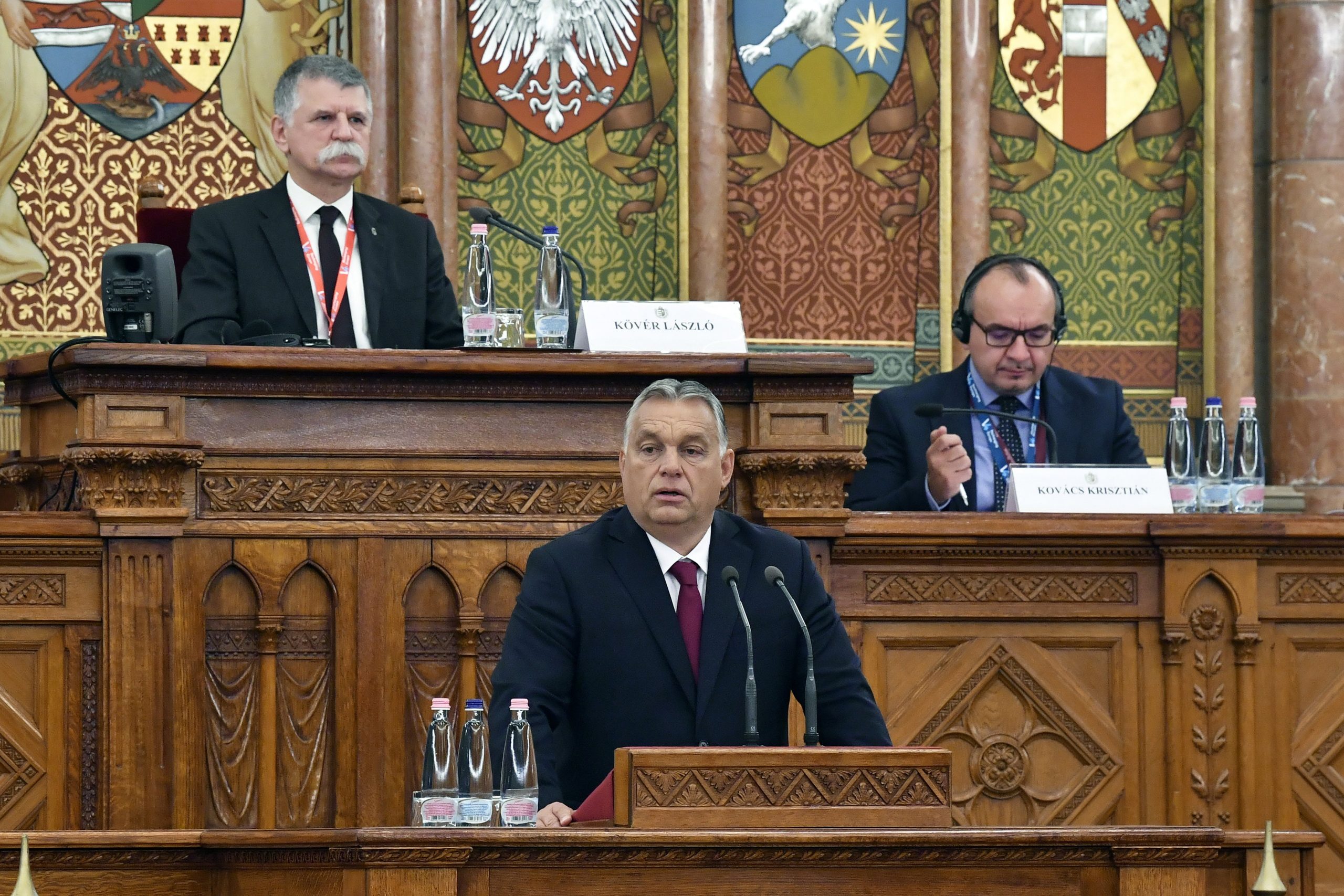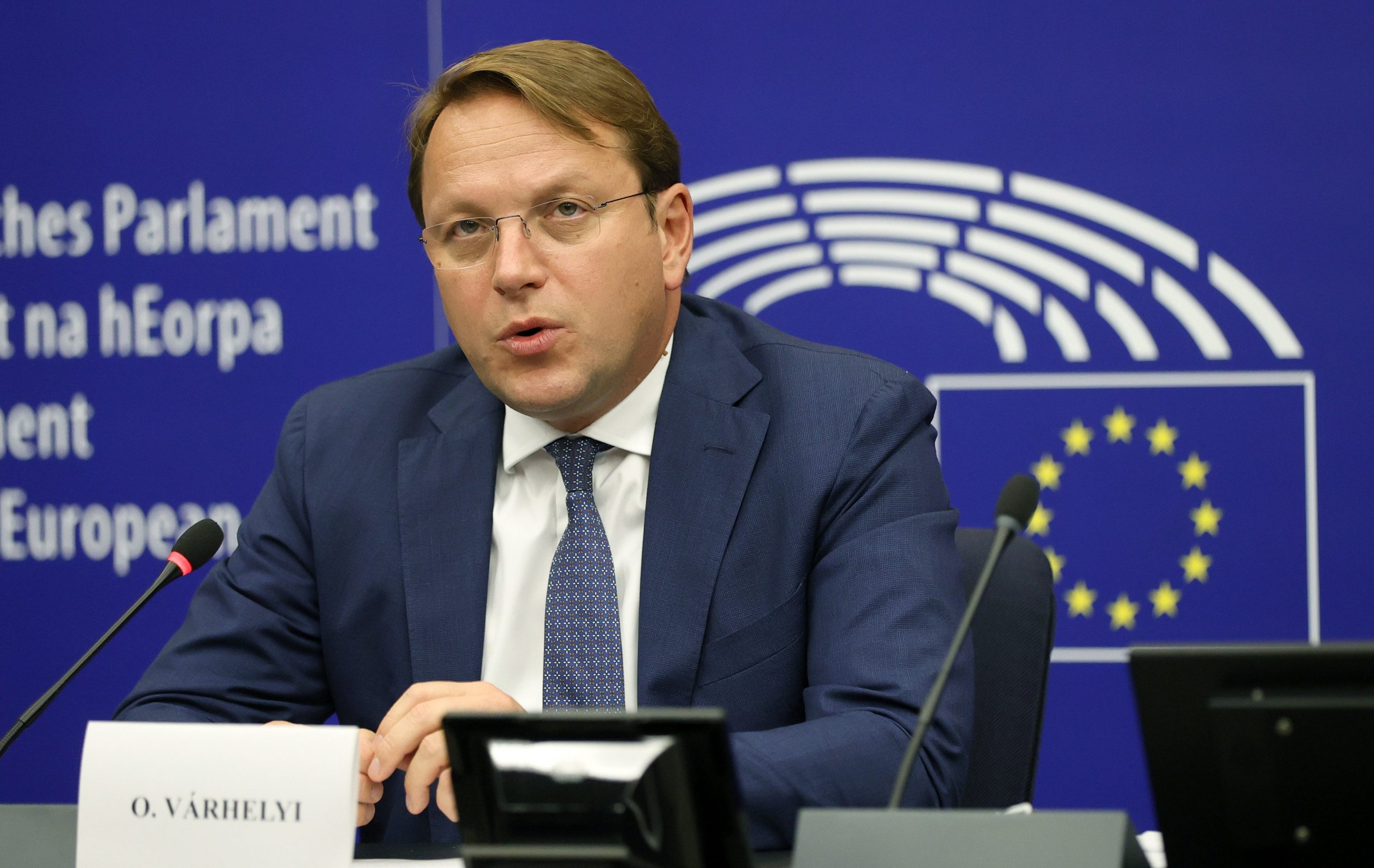
The V4 and Balkan countries may end up building together the most significant economic area of the entire European continent, Orbán said.Continue reading

In an open letter to European Commission President Ursula von der Leyen, Members of the European Parliament are calling for an investigation against Enlargement Commissioner Olivér Várhelyi for his ties with BiH Serb Presidency Member, Milorad Dodik. Meanwhile, the European Commission itself denies the allegations.
Initiated by Hungary’s opposition Momentum party MEP Katalin Cseh, the open letter was signed by 30 EP representatives from several political groups, consisting mostly of socialists, liberals, and greens.
In the letter, lawmakers write that they are closely observing the situation in Bosnia and Herzegovina, stressing that the territorial integrity of BIH is crucial, not only from a local but also from a regional and European perspective. They are “extremely alarmed” by the apparent escalation of political tension within BiH, which they believe is being fuelled by Milorad Dodik, and according to their information, assisted by Várhelyi.
With MEP colleagues, we call for an investigation into Commissioner Várhelyi’s alleged role assisting Milorad Dodik’s separatist escalation in Bosnia-Herzegovina.
The EU needs to stand firmly and credibly on the side of peace. People in BiH and beyond deserve clarity on this. pic.twitter.com/Ihj0nXMfE6
— Katalin Cseh (@katka_cseh) January 12, 2022
“If Mr Dodik’s endeavor to break up the country and establish RS’s independence by withdrawing from state institutions and setting up independent authorities on the territory of RS [Republika Srpska] is successful, its ramifications will be felt far beyond the borders of BiH, with grave consequences for EU foreign policy and the enlargement process.”
According to the MEPs, “It is widely reported that the current Hungarian government is actively supporting Dodik’s campaign to pursue his political strategy in dividing Bosnia and Herzegovina, as evidenced by a recent EUR 100mn support from Hungary to RS just before the upcoming Bosnian general elections,” the MEPs stated in the letter.
They added that a leaked document signed by Johann Sattler, the Head of the Delegation of the European Union to Bosnia and Herzegovina, suggests that EU Commissioner for Neighborhood and Enlargement, Olivér Várhelyi, openly agreed with Milorad Dodik in potentially breaking up BiH.
The signatories of the letter emphasize that the European Commissioners cannot act beyond their mandate contrary to official EU policy pertaining to the Western Balkan region.
“If the impartiality and neutrality of the Commission is called into question, the fragile geopolitical balance becomes immediately threatened,” the letter reads. “In this context, we would like to ask whether the Commission considers Commissioner Várhelyi’s conduct was in line with official EU policy towards BiH?”, the MEPs ask von der Leyen. The representatives also raise the question to the President of the European Commission whether an internal investigation into Várhelyi was expected.
As a result of the 1992-95 Bosnian war, Bosnia and Herzegovina today consists of two loose unions, each with its own institutional system, but their representatives also participate in the work of the joint, federal institutions. Milorad Dodik, the leader of the largely Serb-populated Republika Srpska, has been campaigning for years for the secession of the region.
The conflict between the two entities escalated when Dodik announced last October that Serbs would withdraw from Bosnia and Herzegovina’s key federal institutions, including the military, tax system, and judiciary. The Serb part of the country finally voted on December 10th to recall its officials from the national institutions, holding the meeting with the approval of Olivér Várhelyi, according to a European Commission report leaked by a Bosnian news site. Some commentators argued he indirectly contributed to the secessionist moves of Bosnian Serbs.
Since the European Union is clearly in favor of Bosnia and Herzegovina remaining unified, it would be particularly scandalous if a high-ranking EU official like Olivér Várhelyi were to reach an agreement on the exact opposite.
Some, however, have accused the EU Commissioner of trying to serve the interests of Viktor Orbán’s government, for whom the Commissioner served as ambassador in Brussels prior to his appointment as the EU’s enlargement chief in 2019.
As to which side the Hungarian prime minister is supporting in the current conflict, critics say is clear: Hungary gave EUR 100 million in aid to the secessionist Republika Srpska in December. However, these funds are officially aimed at economic developments in the region.
Moreover, Viktor Orbán angered many Bosniaks in December by talking about the integration of Bosnia and Herzegovina into the European Union being challenging because of its large Muslim population. He stressed that for the EU “how we manage the security of a state in which 2 million Muslims live is a key issue for their security too.” In response, several Bosniak politicians denounced his suggestions and pointed out that they are “an Indigenous European people who have always lived here.”
In his replies to additional questions from MEPs, Várhelyi in 2019 firmly denied all allegations that he was serving the Orbán govt’s interests.
Following the letter of Katalin Cseh and fellow EU lawmakers, the European Commission also stood by the enlargement chief.
According to Euractiv, European Commission spokesman Eric Mamer told journalists he believes Várhelyi made “extremely clear statements on the efforts that the public authorities of BiH have to undertake to pursue their European path.” Mamer added that these statements are “entirely representative of the position of the EU and the Commission.”
Following the allegations, the EU’s outpost in Bosnia and Herzegovina issued a statement confirming that Dodik had told Várhelyi about his plans to hold the legislative session “to begin a process of withdrawing competences” but “this does not in any way imply assent or acceptance of these plans.”
“Indeed, Commissioner Várhelyi argued against these plans,” the statement added.
Featured photo by Ronald Wittek/EPA/MTI